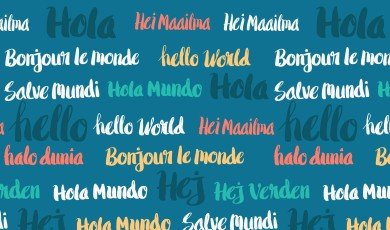
Polish is a Slavic language spoken by approximately 50 million people worldwide, with the majority of speakers residing in Poland. The language is known for its complex grammar and pronunciation, as well as its use of nasal vowels and diacritical marks.
One unique aspect of Polish grammar is its use of case endings. Nouns, adjectives, and pronouns all have different forms depending on their grammatical function in a sentence. There are seven cases in Polish: nominative, genitive, dative, accusative, instrumental, locative, and vocative. This can make the language challenging for learners, but also allows for greater precision and nuance in communication.
Another distinctive feature of Polish is its use of nasal vowels. These are formed by the vibration of the velum, or soft palate, during speech and are represented by a "~" symbol above the vowel. Nasal vowels are not found in all Slavic languages, and their presence in Polish can make the language sound unique and melodic.
Polish also uses diacritical marks, also known as diacritics, to indicate the pronunciation of certain letters. These include the kreska (stroke) above certain letters, such as "ł" and "ń", and the ogonek (little tail) below certain letters, such as "ą" and "ę". These diacritics can change the sound of the letter, as well as its grammatical function.
Despite its complexity, Polish is a rich and expressive language. It has a long literary tradition, with famous writers such as Adam Mickiewicz and Czesław Miłosz, and has also made contributions to the fields of science and mathematics, such as the work of Marie Curie.
Polish is also a relatively phonetic language, meaning that words are usually pronounced as they are spelled. This can make it easier for learners to read and pronounce words, as there are fewer irregularities to memorize.
Polish is also a relatively phonetic language, meaning that words are usually pronounced as they are spelled. This can make it easier for learners to read and pronounce words, as there are fewer irregularities to memorize.
In addition, despite the complexity of the grammar, there are many resources available to help learners master the language. From online tutorials and apps to language schools and conversation partners, anyone interested in learning Polish can find the support they need.
In conclusion, Polish is a complex and unique language with a rich history and culture. It has many distinctive features, such as its use of case endings, nasal vowels, and diacritical marks. However, with the right resources and support, it can be a rewarding language to learn. Whether you're interested in literature, science, or simply communicating with native speakers, Polish is a language worth exploring.
Should you need Polish translation services PoliLingua is the company to reach out to








